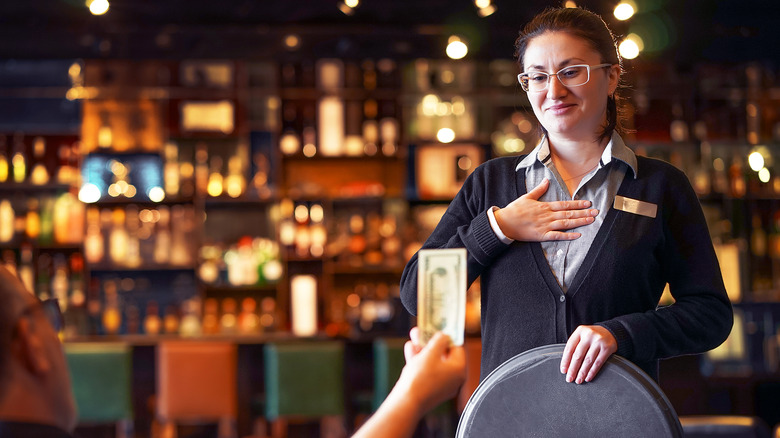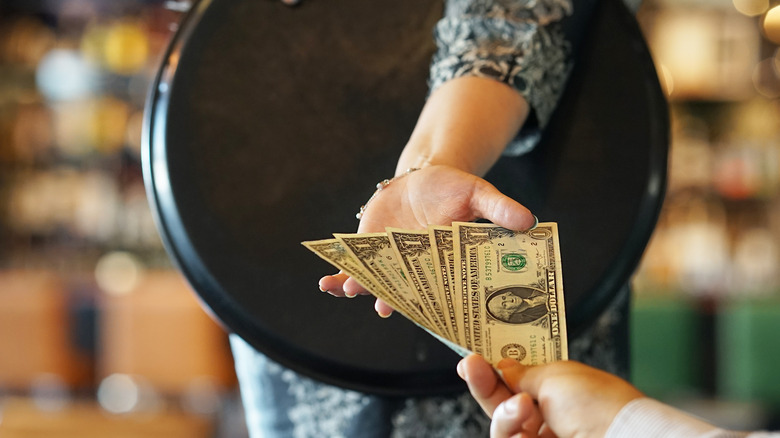New Data Exposes California As Tipping Restaurants Servers The Least
While California's average real personal income per capita might be higher than the national average, it does not appear that those dollars are being added to the tip line. Although some diners might quip about tipping on takeout, counter service, or other purchases, tipping trends are often impacted by economic factors. In 2022, Brendan Sweeney, CEO and Co-founder of Popmenu told QSR, "tipping behavior may fluctuate depending on market conditions, but the intent to support restaurants remains strong." While that particular data from 2022 found consumers are tipping more, it appears that California's restaurant employees are not screaming "Eureka!" when it comes to their tips.
According to Toast, a digital platform for restaurants, California is the least generous tipping state with an average tip of 17.5%. In contrast, Delaware is the highest tip percentage state at an average of 21.8%. Overall, Toast found that tipping through its digital platform was down across the board in 2022. Although the decrease was slight, the trend does not bode well for restaurant staff. Given that tips can be a significant portion of a staff member's paycheck, even the slightest variation can make a difference to a worker's bottom line. Unlike the gold rush in California's past, there appears to be no fortune found on the tip line for service staff.
Does California have a history of poor tipping?
Toast revealed that California earned the position as the worst tipping state, and the newest findings seem to prove the state has a history of poor tipping habits. Even though Hollywood dreams might be paved in gold, that fortune may not be reaching restaurant servers. In 2017, Time and Square both published findings that California was one of the worst tipping states even though it had a high per capita income. While the data might be disheartening, perhaps it stems from a more generational issue, not a geographic one.
Fox Business discussed a CreditCard.com study that found millennials and Gen Zers were the worst tippers. The study found a correlation between personal income and tipping percentages. Although that gratuity is a service thank you, some reasons for the lesser amounts included ineffective service, wait times, and wrong orders. Whether or not these study findings are used to argue for abolishing tipping, more equitable wages, or another compensation option can be debated. For now, California service staff might need to budget wisely because that big fat tip on a dinner service might be more of a fictional movie scene that a real-life scenario.

